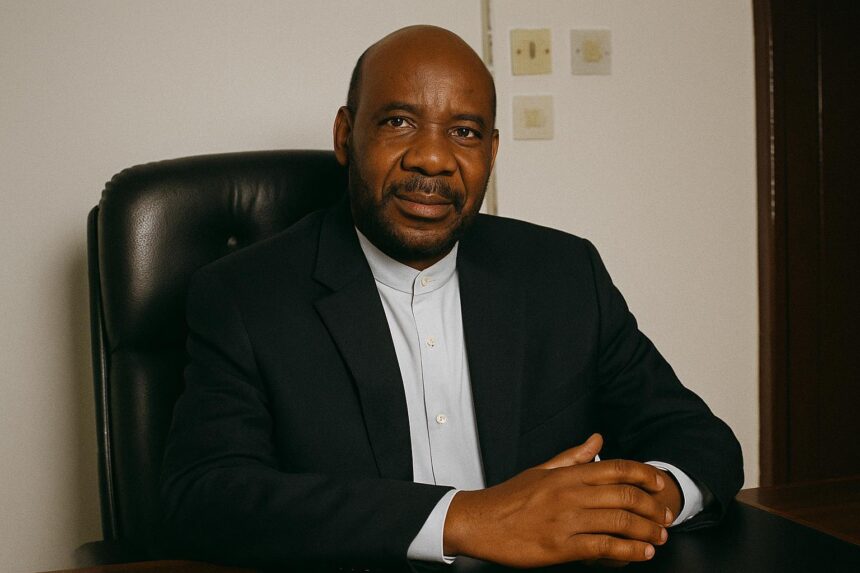A consensual elevation at the heart of the RPC
Behind the carved mahogany doors of a discreet Brazzaville conference room, six centrist parties sealed an agreement that had been quietly maturing for months. The Union pour la Reconstruction et le Développement du Congo’s Luc Daniel Adamo Mateta, long regarded as the intellectual conscience of the grouping, was chosen on 16 July to pilot the Rassemblement des partis du centre through the remainder of the electoral cycle. His designation was greeted with applause rather than surprise, for the former honourary president had already been the coalition’s most visible strategist since its creation in April 2023.
Speaking after his confirmation, Mr Mateta struck a deliberately measured tone. “Our responsibility is to translate the Republic’s aspirations into policies that are both pragmatic and patriotic,” he told a handful of reporters, invoking the twin virtues that sit at the core of the RPC’s charter. Two deputies, Aimé Brice Mombo and Arnaud Abel Engondzo Mondongo, will ensure operational continuity, while a newly established technical secretariat is expected to professionalise day-to-day coordination.
Decoding Decree 1726 and the legal landscape
The appointment unfolded in the immediate aftermath of Interior and Decentralisation Decree No 1726 of 30 June 2025, a text published in the Journal Officiel that certifies forty-two political parties for the current year. The document, prepared in consultation with the Supreme Court and the Independent National Electoral Commission, delineates the threshold of representativeness required to benefit from public funding and access to airtime. By recognising all six RPC members, the decree effectively grants the coalition an institutional foothold without disrupting the broader equilibrium that has characterised Congo-Brazzaville’s party system since the reintroduction of multiparty politics in the 1990s.
Political scientist Dr Calixte Nganongo of Marien Ngouabi University argues that the legal clarification may bolster parliamentary deliberations. “A consolidated centrist bloc can help refine legislative negotiation, complementing the majority without antagonising it,” he observed, noting that the government’s willingness to codify party status reflects an incremental approach to political pluralism.
Pragmatic centrism in Congo-Brazzaville’s political fabric
In a polity where ideological polarisation is often tempered by coalition-building, the RPC pitches itself as the custodian of what its manifesto calls “lucid patriotism.” Its platform privileges economic diversification, administrative efficiency and environmental stewardship, while deliberately avoiding confrontational rhetoric. Analysts in Brazzaville suggest that this posture dovetails with President Denis Sassou Nguesso’s emphasis on stability and gradual reform. By reiterating its support for constitutional order, the coalition signals that it seeks influence through persuasion rather than protest.
Historically, centrist outfits in the Congo have served as interlocutors between dominant parties and emerging social forces. The RPC leadership appears determined to revive that tradition. Mr Mateta, an engineer by training, frequently cites the need to align infrastructural development with transparent public-private partnerships, echoing recent guidelines circulated by the Ministry of Planning.
Regional echoes and international perception
Beyond national confines, the RPC’s recalibration resonates with a regional trend toward coalition politics. Similar experiments in neighbouring Gabon and Cameroon have been observed by the Economic Community of Central African States, which increasingly frames centrist formations as vectors for institutional dialogue. Diplomats based in Brazzaville point out that a cohesive RPC could become a constructive partner in regional security consultations on the Gulf of Guinea and climate diplomacy tied to the Congo Basin’s carbon sinks.
The French think-tank Institut Prospective & Sécurité en Afrique, in a briefing circulated to embassies, notes that a centrist consolidation “mitigates transaction costs for external partners seeking reliable interlocutors in Congo-Brazzaville.” Such assessments underscore the strategic value conferred upon Mr Mateta’s coalition role.
Prospects for 2025 and beyond
With local elections tentatively scheduled for the second half of 2025, the RPC must now translate symbolism into electoral arithmetic. Internal working groups are drafting policy compendiums on agriculture, youth entrepreneurship and digital governance, aiming to present a coherent programme by early December. Observers suggest that the coalition’s appetite for incremental gains, rather than sweeping ruptures, may resonate with an electorate fatigued by ideological maximalism.
In the meantime, Mr Mateta’s immediate challenge is organisational. The technical secretariat is expected to compile membership wp-signup.phps, harmonise communication strategies and coordinate training modules for candidates. His ability to deliver a disciplined yet inclusive campaign will determine whether the RPC emerges as a pivotal hinge in Congo-Brazzaville’s evolving parliamentary geometry.
Should the coalition succeed, it would illustrate the adaptive capacity of the Congolese political framework. It would also reaffirm the premise that constructive centrism, far from diluting national ambition, can provide a calibrated compass for governance in an era of regional volatility and domestic aspiration.




















